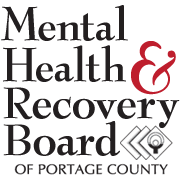
Student mental health issues continue to rise during pandemic
Recent survey results tracking mental health concerns of high school and college students underscore the emotional toll the COVID-19 pandemic has taken on younger generations.
A survey conducted by College Pulse, a research firm represented by more than 1000 colleges and universities in the United States, found mental health to be a concern for college students.
Over 2,000 actively enrolled undergraduate college students completed the 20-question survey between March 16 and March 22 this year – two years since the pandemic first started.
According to the survey, 34% of the respondents said their overall mental health was “fair” while 9% said it was excellent throughout the pandemic.
Due to the unexpected challenges students have had to face during the global health crisis – including moving to online classes – counselors and health professionals note that the pandemic has only worsened mental health issues among individuals.

Courtesy: Creative Family Wellness
“[The pandemic] has been a big challenge. It’s made people tired [and] it’s made people forget how to be social and how to interact,” said Morgan Enright, a counselor at Kent State’s Counseling and Psychological Services. “What we’ve seen really increase is generalized anxiety.”
One of the most commonly diagnosed mental illnesses, generalized anxiety disorder, affects about 6.8 million adults in the U.S., according to the Anxiety and Depression Association of America.
A major cause of anxiety is stress-related factors, including physical, psychological and emotional stress.
57 percent of students said their biggest stressor was keeping up with schoolwork throughout the pandemic, according to the survey.
“I think a lot of [students] really have their eye on the prize, on their grades and on perfection,” Enright said. “We see a lot of stress and pressure and anxiety around that.”
College is a stressful time for young adults, especially when they are attending a college or university for the first time, she said.
“Mental health affects younger adults differently,” Enright said. “Older adults have different experiences and some different stressors, but certainly with the young adult population, a lot of [them] are getting robbed of some rites of passage. For those entering the college life, they might have missed graduations or traditional proms.”
“More than 50% will be diagnosed with a mental illness or disorder at some point in their lifetime.”
Centers for Disease Control and Prevention
There are many forms of mental health illnesses, including anxiety and depression, bipolar disorder, attention-deficit/hyperactivity disorder and post-traumatic stress disorder, according to the Centers for Disease Control and Prevention.
“Anxiety is a big one,” Enright said. “Everybody’s adjusting to being a college student. Any changes that come with being a young adult, or traditional college student [is an adjustment].”
For many students, it’s been hard to remain social throughout the pandemic, she said.
“There’s been isolation and now just kind of this awkward re-entering, and so people don’t know what to do,” Enright said. “A lot of people turned to digital and social media to communicate.”
“Teenagers who use social media for more than 3 hours daily are more likely to experience mental health problems, such as depression, anxiety, aggression, and antisocial behavior.”
Medical News Today
Increased social media use during the pandemic also raises mental health concerns, Enright said.
“Technology is big … it’s a big source of distraction,” she said. “People are getting really sucked into that [and] are making comparisons between themselves and everybody else on social media.”
Mental health issues also increased among high school students. According to recent data from the CDC, in 2021, more than a third of surveyed high school students reported experiencing poor mental health during the pandemic, and 44% said they persistently felt sad or hopeless during the past year.
The research, a survey of more than 7,000 high school students across the country, found links to a previous CDC study that reported a 40 percent rise in feelings of sadness and hopelessness among high school students from 2009 to 2019.
“These data echo a cry for help,” said CDC Acting Principal Deputy Director Debra Houry in a press release. “The COVID-19 pandemic has created traumatic stressors that have the potential to further erode students’ mental wellbeing. Our research shows that surrounding youth with the proper support can reverse these trends and help our youth now and in the future.”
The study also found that a sense of being cared for, supported, and belonging at school had an important impact on students during the disruptions caused by the pandemic, according to the CDC.
“Peer relationships are so important,” Enright said. “Friendships are so important.”
As a result of the pandemic, more people are focusing on their personal relationships, she said.
“If you think about it, our world was kind of like a snowglobe. It got tipped upside down for two years and then just completely flipped upright again,” Enright said. “We had to adjust in a very short period of time. Just like you’re adjusting to any new habit or lifestyle, you just need to have some compassion for yourself.”
Although the pandemic caused isolation and a lack of connectedness, more students are seeking help and guidance.
“Times of change, whether it’s good change or bad change, always are pretty difficult for people, said Dawn Potter, a clinical psychologist at Cleveland Clinic. “I think the universal aspect of [the pandemic] also made people more easily able to talk about mental health [and] to talk about the challenges.”
“We are seeing more students coming to us for help and guidance.”
Morgan Enright, Counselor at CAPS Center at Kent State
Schools, colleges and universities play a crucial role in supporting the health and well-being of students, Enright said.
“We have lots of resources available, starting with just groups and workshops,” she said. “We can also make community referrals.”
“We’ve expanded our services to include both in-person and telehealth options”
Morgan Enright, Kent State CAPS Center Counselor
However, there isn’t always easy access to resources for young adults, Enright said.
“We have students that are uninsured and they may not be able to get the services that they would hope for,” she said. “They may be without transportation or financial means to kind of do so.”
In Kent, the Mental Health and Recovery Board of Portage County provides free mental health and addiction services to all residents, including Kent State students living in Portage County.
“It’s our job to fund, plan, and monitor the mental health and addiction treatment services for the residents of Portage County,” said Karyn Kravetz, associate director of the Mental Health and Recovery Board. “No matter what the circumstance is, there shouldn’t be any barrier, whether its ability to pay or where [you’re] located.”
Enright noted that as the world starts to reopen, people should start focusing on rebuilding relationships with themselves.
“The biggest thing that I would emphasize is everybody needs to go more easy on themselves,” Enright said.



